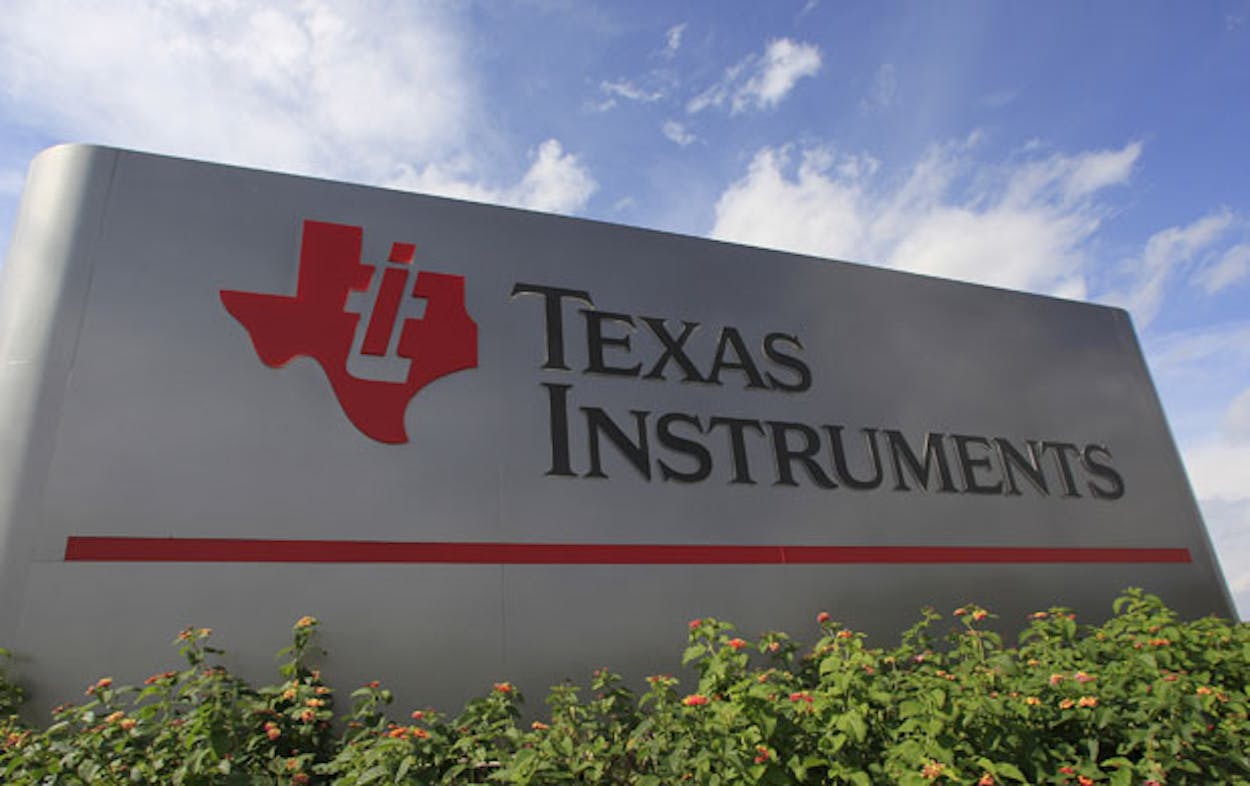The Texas economy is one of the most robust in the world. Wildly profitable companies and ingenious entrepreneurs call this state home, and what happens here influences businesses around the nation. Here’s a slice of the profits, losses, big deals, and backroom decisions happening across Tex
Mi Cabana Es Su Cabana
The parent of the Tex-Mex restaurant chain Taco Cabana announced this week that it will relocate its headquarters to Addison in January. Fiesta Restaurant Group Inc., which is currently based in Miami and also owns Pollo Tropical Restaurants, will receive a $100,000 incentive package from the Town of Addison in exchange for moving there and keeping 55 employees on its local payroll for at least three years, the Dallas Business Journal reports.
Fiesta’s CEO, Timothy Taft, is no stranger to the Texas restaurant industry: He was previously the president and CEO of Whataburger Inc., based in San Antonio.
The Bottom Line: Addison has a reputation for being a restaurant-friendly community—Bar Louie moved there last year, and the north Dallas suburb is also home to the headquarters of Fogo de Chao, Twin Peaks Restaurants, and Razoo’s.
BP: Less Polluting, More Computing
The Houston Business Journal reported this week that BP is moving forward with construction on a new supercomputing center—“the largest commercial research supercomputer complex in the world,” according to the company—at its U.S. headquarters in Houston. After finally settling its oil spill lawsuit for $4.5 billion last month, the London-based energy giant is ramping up its efforts in computing, which will allow it to use global geologic data to “better identify oil and gas exploration targets” and reduce costs by improving efficiency, the newspaper reports.
The Bottom Line: BP plans to invest more than $100 million in supercomputing in the next five years. The new Houston facility is expected to be up and running by next summer.
Dough … Set … Nut!
Colt McCoy may be riding the bench in Cleveland, but now he has another career option to fall back on: doughnut shop franchisee. In a deal that makes his early days as a pharmacy pitchman seem small by comparison, the former UT quarterback and his business partners announced Monday that they plan to open 24 Dunkin Donuts stores in the Austin metro area, according to KUT News. The chain, which has a foothold in the northeast, has less of a presence in Central Texas, with only two stores currently operating in the area (both of which McCoy’s franchise group plans to buy). The first new location will open in Cedar Park early next year.
In a statement announcing the deal, Dunkin Donuts said it plans to continue expanding in other regions in Texas, particularly in metro areas in the eastern, southern and western parts of the state.
The Bottom Line: This isn’t Dunkin’s first foray into the Texas market: In 2010 the company established “the nation’s first Dunkin’ Donuts baking and pastry classroom” at The Culinary Institute of America’s San Antonio campus.
Winner of the Week: Exxon CEO Rex Tillerson
According to a Securities and Exchange Commission filing published this week, Exxon Mobil’s year-end executive compensation plan calls for a 6 percent salary increase and a $4.59 million bonus for CEO Rex Tillerson. Tillerson’s annual salary rose to $2.71 million from last year’s $2.57 million, The Motley Fool reports. Irving-based Exxon, the largest publicly traded oil company in the world, is offering its top management a total of $266 million in cash bonuses.
Loser of the Week: Texas Instruments
Texas Instruments began notifying employees this week of the dates of layoffs planned as part of a 5 percent cutback in its global workforce—a total of about 1,700 jobs, The Dallas Morning News reports. The Dallas-based chip maker is bailing out of the mobile market, making many engineering and R&D positions obsolete.
However, some former employees may be due for some good news. The Next Web reported this week that Apple has begun recruiting dozens of displaced TI engineers, including several who worked for the company’s R&D center in Israel. While TI is exiting the smartphone and tablet chip sector, Apple is moving further into it, hoping to bring “its chip design and building efforts in-house,” according to CNET.






